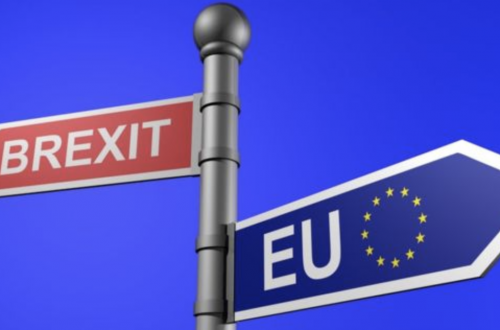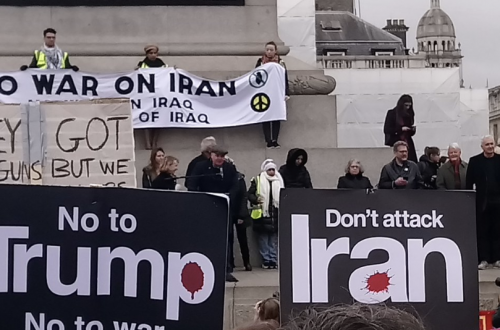This is a Cross Post From Conservative Home by Haras Rafiq from The Quilliam Foundation.
The Original can be viewed here
Last weekend, on the 29th of June – which also happened to be the 1st Ramadhan 1435 (Islamic calendar) a historic event took place: the Islamic caliphate was re-established in the Middle East. As the Independent reported:
“The Islamic State of Iraq and the Levant (Isis) declared the areas it occupies in Iraq and Syria as a new Islamic state, removing Iraq and the Levant from its name and ushering in “a new era of international jihad. The announcement will see Isis now simply refer to itself as The Islamic State, and the group has called on al-Qa’ida and other Sunni factions to immediately pledge their allegiance.”
A spokesperson for ISIS said all jihadist organisations must now offer up their support to Isis leader Abu Bakr al-Baghdadi, who has been declared Caliph of the new state. The significance of the announcement may have been lost on many in the West since, apart from within the Ahmadiyya sect of Islam, there has not been a caliphate since the days of the Ottoman Empire.
Declaring a Caliphate is a move that has huge ideological and theological significance. Defined as meaning the government under a Caliph, it means that ISIS, now styling itself The Islamic State (IS), has declared its leader Abu Bakr al-Baghdadi as the spiritual leader of all Islam. This places the rest of the Islamists around the world in a bit of a quandary.
Groups such as Hizb ut Tahrir, who both David Cameron and Tony Blair tried to proscribe, have continuously called for the Caliphate to be restored, and similarities between them and ISIS are demonstrated in the fact that both vie Islam as an all-encompassing socio-political system that has been absent ever since the Ottoman Caliphate’s demise. Contemporary rulers are seen as apostates, because they do not implement the Islamist project in its totality. Furthermore, Muslim-majority countries, or those once ruled by Muslim leaders, are identified as “occupied Islamic lands.”
Similarly, front organisations linked to the proscribed al Muhajiroun describe themselves as “not a group or a political party, but as a Jama’ah (collective body) working towards the world-wide domination of Islam.” The avowed aim of Al-Muhajiroun was to restore and expand the Caliphate, which would operate according to the principles of divinely-given Islamic Sharia law. The new Caliph, called Al-Khalifah or “leader” on Al-Muhajiroun’s website, was to be one “whose foreign policy is to conquer the whole world by Jihad.”
This then brings us to the wider Islamist bodies such as the Muslim Brotherhood and the Jamaat-e-Islam that underpin the ideological philosophy of many front organisations in the UK. These two organisations also claim that their aim is to create a Caliphate and govern under their version of Sharia law. Their tactics may be different but the aims are the same.
So if ISIS has called for all Muslims to take a pledge of allegiance with essentially the new Caliph of the new Islamic State, what will Islamists in Britain do? Will they give their oath as their doctrine implies, and continue to support the Jihad either by travelling to the region or by staying here and undertaking further activities; or will they go against their principles and decide, after a period of self-reflection, that their ideas are not as robust as they once thought they were. After all, is the “Islamic State” not what they have been waiting for?
Perhaps they are waiting for half term holidays or for Baghdadi to introduce the welfare state – child benefits and job seekers allowance and free healthcare…or maybe they are just waiting for him to instate the concept of freedom of speech that they are used to?
For many Islamists, there will be slight theological differences as well as, for some, tribal issues that prevent them from accepting Baghdadi as their Caliph. There has been a history of disputes going back all the way to the Prophet Muhammad’s (p) passing as to who should be the Caliph after him. This, in turn, created one of the early schisms in the faith – Sunni vs Shia – and every single Caliph thereafter has had his doubters and seen disputes about his legitimacy to rule. I suspect that this will continue and that, for similar reasons, many will refuse to pledge their allegiance. The penalty for this is that they will be denounced as rebels against the state and having committed treason.
The Government has made it quite clear that it is be a criminal offence to associate with or give financial backing to ISIS, and I suspect that the overwhelming majority of British Muslims will reject the call, though some may support the right for Muslims to travel to the region – such as the former Government Advisor for Prevent, Farooq Siddiqui. But the fact that there are hundreds of British Jihadis fighting in the region is of grave concern and we need to monitor developments closely with one eye on the UK.


